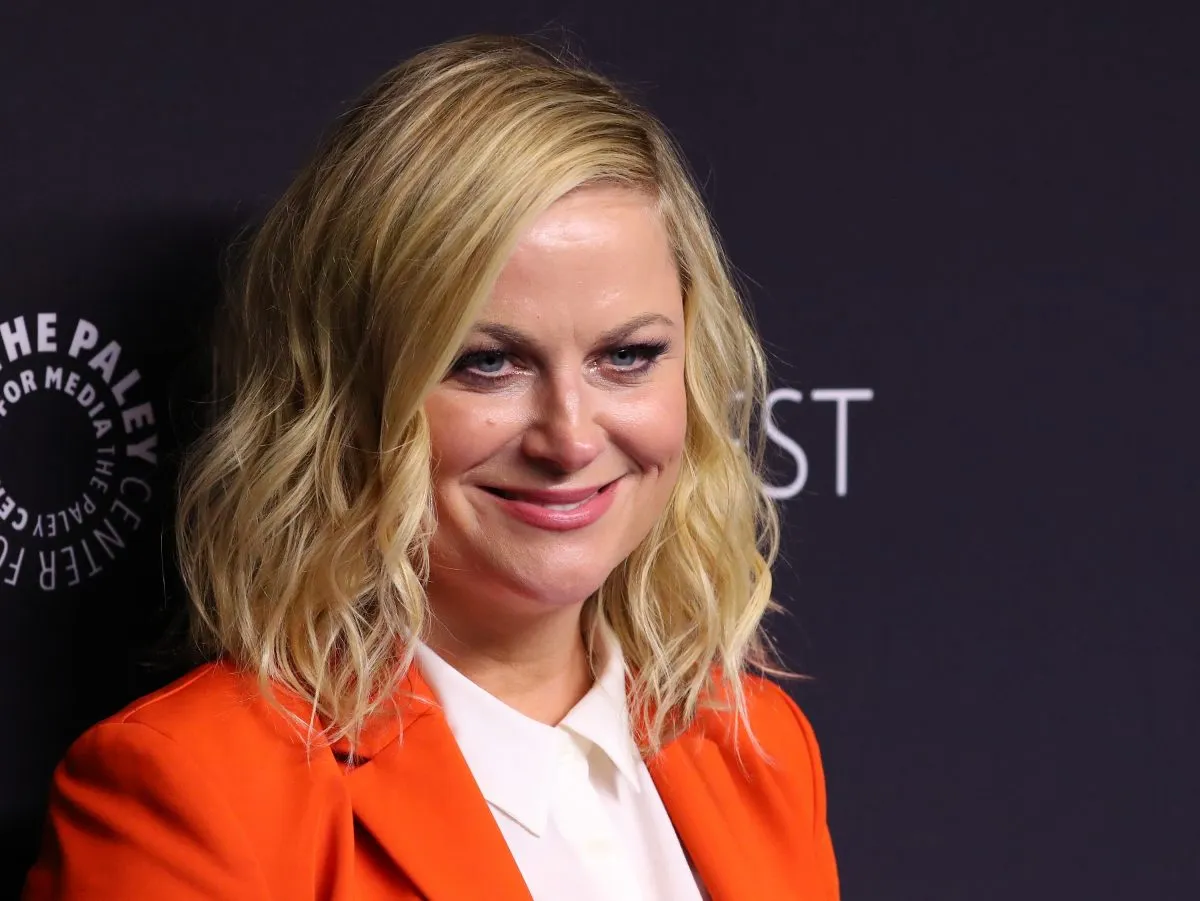We here at The Mary Sue spend a lot of time writing about the importance of female representation in entertainment. We talk about women in front of the camera women behind the camera, women in the writers room, and women in the boardroom making decisions to hire more women. And this isn’t limited to Hollywood: we want to see diverse representation across all industries, in politics, tech, everywhere.
But it’s not just because we’ve been systematically undervalued and discriminated against (although that’s a huge part of it). When you put women in charge of something, more often than not, they hire, elevate, and amplify other women. And for industries (like entertainment) that run on personal connections and mentorship, we need women in positions of power more than ever.
In a recent profile on Amy Poehler in The Hollywood Reporter, the former SNL and Parks and Recreation star discussed her upcoming directorial debut, Wine Country. The Netflix film follows Poehler and her female friends from SNL on a raucous birthday weekend celebration, loosely inspired by co-star Rachel Dratch’s 50th birthday weekend in Napa.
Poehler’s longtime friend and collaborator Tina Fey said, “Amy is taking the work of the women of early SNL — Gilda Radner, Jan Hooks — to the next natural progression of being proactively, actively feminist in her work … Those ladies had to work hard just to survive. Amy has always been conscious of being a positive influence, of the work having to be very good and of using her position of having a theater and building great TV shows to bring other young women forward.”
Poehler’s career trajectory is proof of the power of women lifting up other women. She was a producer on Broad City as well as Russian Doll, both female-driven comedies that employed women in all different departments. Projects like these face an uphill battle in the male-dominated world of entertainment.
Several networks passed on Broad City, calling it “too girly.” Creators Ilana Glazer and Abbi Jacobson invited Poehler to be a producer, “We were like, ‘There’s no way she’ll say yes, but let’s just do it,'” recalls Jacobson. “And then she said yes and it fucking blew our minds. We were going nuts. It was like we were completely validated.”
But having women in positions of power also gives insight into a completely different form of leadership and way of doing business. The film industry is rife with enfants terribles, A-list male directors who think nothing of going off script, over budget, and ruling their sets with a culture of fear and harassment. But it doesn’t have to be that way. Poehler described the way she works, saying:
“I’ve had the incredible good fortune of being around supportive, interesting women who are not looking to take each other down,” she says. “And I am a very competitive person. But it’s never in response or reaction to somebody else’s successes or failures. And the few times I’ve stepped into that world, on other projects, it’s very Art of War, where I’ve laid down my shield very fast. It’s like, ‘Oh no, that’s not how I operate. I don’t work that way.’ And usually it’s very disarming because there are a lot of women who have had different experiences and rightfully don’t always trust the people they’re with.”
Fey follows her up, by noting that leadership doesn’t always mean ruling with an iron fist. “Amy is a natural leader … And that doesn’t always mean bossing people around. Part of being a good leader is listening and being empathic. And being a great role model who makes people play at her level.”
And unlike her fellow male comedians, who are quick to criticize younger audiences for changing tastes and sensitivity, Poehler is growing and adapting her comedy for a more woke age. “When I was in my 20s and hungry, I felt a certain healthy amount of irreverence and anger … As you get a little older things are a little more gray, and hopefully you become more compassionate.” It’s a refreshing change of pace from comedy giants who would rather to stick to old material than adapt with the times.
Hollywood needs more progressive leadership like Poehler’s, where women open the door for other women and rule their sets with compassion and empathy instead of testosterone-fueled ego and aggression. Truly, what have they got to lose?
(via The Hollywood Reporter, image: JB Lacroix/Getty Images)
Want more stories like this? Become a subscriber and support the site!
—The Mary Sue has a strict comment policy that forbids, but is not limited to, personal insults toward anyone, hate speech, and trolling.—










Published: Apr 24, 2019 8:04 PM UTC